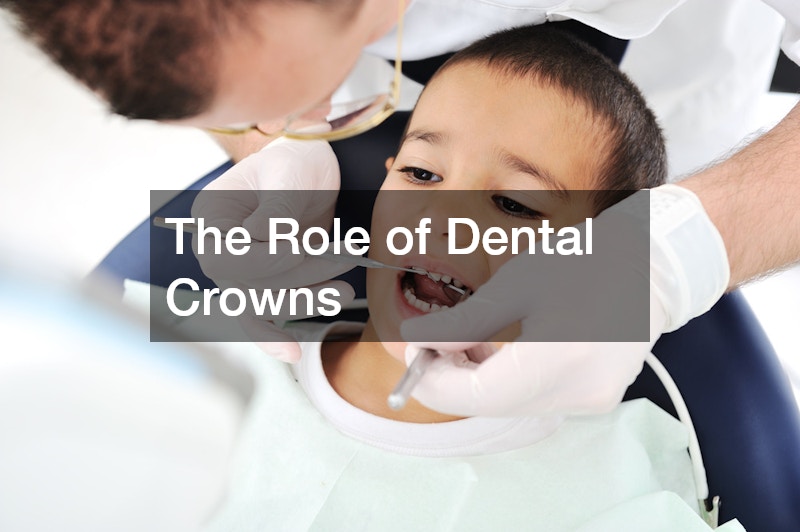10 Things to Consider When Choosing Your Child’s Dentist
Choosing the right dentist for your child is a crucial decision that can significantly affect their oral health journey. As parents, we want to ensure our children enter adulthood with strong, healthy teeth and a positive relationship with dental care. Finding the right provider involves considering multiple factors, from affordability to specialization in child dental care. Your child’s dentist will not only look after their present dental needs but also play a foundational role in preventing potential oral health issues down the road.
Understanding what’s important when selecting a dentist can seem overwhelming at first. You have to consider not only your budget and the qualifications of the dentist but also the specific needs of your child, such as whether they require orthodontic treatment or cosmetic enhancements. Furthermore, the field of dentistry is becoming more nuanced with an array of specialists offering services beyond general pediatric dental care. In this article, we will share the top ten considerations to guide you in choosing the perfect dental provider for your child’s unique needs.
This comprehensive guide explores ten vital factors, from finding an affordable dentist to knowing when to consult a dental surgeon. Through detailed insights and suggestions, this article aims to provide you with the clarity and confidence needed to make an informed decision about your child’s dental future. Let’s dive into these key considerations and discuss why they’re important in ensuring that your child receives exemplary dental care.
Finding Affordable Care
Affordability is a top concern for many families when choosing your child’s dentist. Dental care can be costly, and ensuring it fits within your budget is crucial to maintaining consistent visits and treatments. Many practices offer payment plans or discounts, especially for families or multiple children, which can make dental care more accessible. Finding an affordable dentist that provides quality care can relieve financial stress and ensure your child receives regular check-ups and necessary procedures.
When aiming to find an affordable dentist, it’s essential to not compromise on the quality of care. Look for clinics that provide transparent pricing and offer a detailed breakdown of costs involved in regular check-ups, treatments, and emergency care. Some practices might also work with economic community dental programs or accept various insurance plans, widening the options for affordable care. This approach ensures you don’t sacrifice your child’s health care due to financial constraints.
Researching local dental clinics and reading reviews can also help in understanding the financial expectations and quality of care provided. By prioritizing both affordability and care standards, parents can make an informed choice that benefits their child’s health without breaking the bank. Ultimately, finding a dentist who understands the financial constraints many families face and offers flexible payment options is crucial to maintaining your child’s ongoing dental health.
Choosing a Specialized Clinic

Specialization can be a deciding factor when choosing your child’s dentist. Cosmetic dental clinics, for example, offer services that go beyond routine cleanings, such as whitening, veneers, or bonding, which can become relevant for older children and teenagers. Opting for a clinic that specializes in specific dental needs can provide your child with focused, expert care that addresses unique oral health circumstances.
If your child requires more than routine dental care, a cosmetic dental clinic might be suitable. These clinics are equipped with technology and expertise tailored to specific dental enhancements. For children who might need cosmetic dental procedures due to accidents or hereditary issues, having a cosmetic dental clinic ensures specialized treatment that can boost a child’s confidence and dental aesthetics.
Ultimately, deciding whether to select a specialized clinic depends largely on the present and anticipated needs of your child. Consulting with your primary pediatric dentist about potential cosmetic needs can help determine if a specialty clinic is suitable. This way, parents can ensure that as their child grows, they receive all necessary dental care without the constant need to switch providers.
Benefits of Tooth Fillings
Your child’s dentist may recommend composite dental fillings as a solution for cavities, offering both functional and aesthetic benefits. Composite fillings are designed to match the natural color of a child’s teeth, making them a preferable choice for both primary and permanent teeth. Understanding the advantages composite fillings offer for children can assist parents in making informed decisions about their child’s dental repairs.
Composite dental fillings are widely used due to their durability and natural appearance. They effectively restore the integrity of the tooth while preventing further decay or structural damage. For growing children, maintaining the structural integrity of their teeth is crucial to ensuring that their oral development proceeds smoothly. These fillings adhere well to teeth, providing a strong and resilient bond that can handle daily activities like chewing without issue.
Consulting with your child’s dentist about composite fillings ensures you understand the full range of benefits and the procedure involved. Discuss potential costs, as they can vary and impact long-term dental budgeting. Experienced dentists can offer insight into the latest materials and techniques used in fillings, providing parents with peace of mind knowing their children receive the best possible dental care.
Aesthetic Dentistry Options

Considering options for aesthetic dentistry can play a significant role in a child’s self-esteem and social confidence, particularly as they transition into their teenage years. Finding a cosmetic dentist for certain enhancements can greatly improve a child’s overall dental health and appearance. These procedures range from minor enamel shaping to comprehensive treatments like full smile makeovers, each offering meaningful benefits to young patients.
Seeking a cosmetic dentist could provide your child with various options tailored to their unique dental needs. Many adolescents may benefit from aesthetic improvements, especially in cases of chipped, irregular, or discolored teeth which can impact self-confidence. A qualified cosmetic dentist will assess your child’s oral situation and provide recommendations based on a thorough analysis of both current needs and potential for future correction.
When exploring aesthetic options, evaluating your child’s needs is crucial. Discuss with your dentist the appropriate time for cosmetic interventions, considering long-term oral health impacts and costs. By integrating aesthetic considerations early in your child’s dental journey, parents can effectively address concerns that might otherwise hinder their child’s social interactions and self-perception.
Considering Dental Bridges
Dental bridges can be an effective solution for children who have lost a tooth due to injury or decay. They maintain the alignment of your child’s existing teeth and prevent shifting, which can result in further dental complications. When selecting your child’s dentist, understanding the potential need for dental bridges and their implications could be critical to maintaining your child’s oral health.
These dental prosthetics play an essential role in preserving a child’s bite alignment and facial structure. By bridging the gap left by missing teeth, they help maintain oral health by distributing biting pressure evenly across teeth. Discuss with your child’s dentist the scenarios in which a bridge may be advisable, the materials used, and how these bridges can effectively replace missing teeth without compromising surrounding ones.
A skilled dentist can provide guidance on the suitability and timing of dental bridges. Such options should be weighed against other dental appliances like removable partial dentures or implants, depending on the individual child’s needs and development. Ensuring that your child continues on a healthy dental trajectory requires proactively planning for potential tooth loss and its implications.
The Role of Dental Crowns

Dental crowns play a pivotal role in restoring a child’s tooth structure after extensive decay or damage. They provide durability and resemblance to natural teeth, making them a common recommendation by your child’s dentist for teeth that cannot be repaired with fillings alone. Understanding how crowns protect and preserve tooth structure is fundamental for parents making decisions about restorative dental care for their child.
A crown serves as a protective covering, revitalizing teeth that might otherwise be lost due to significant deterioration. These customized caps can significantly extend the life of a tooth, ensuring that it remains functional for a longer period. Your child’s dentist will explain the process involved in crown placement, the materials available, and the expected lifespan, giving parents a comprehensive view of this restorative option.
When deciding on a crown for your child, consider the benefits it offers in preserving the integrity of natural teeth. The decision often balances between aesthetic considerations and practical restorative benefits as crowns ensure sustainable oral health. Engaging with an experienced dentist to discuss material choices, costs, and procedural details can ensure well-informed decisions that support ongoing oral health and happy smiles.
Exploring Implant Options
Advancements in dental technology have introduced solutions such as the all on 4 dental implant, which can profoundly impact a child’s dental functionality and aesthetics. While typically used in adults, implant techniques can be an option for older children or teens with permanent teeth concerns. Consulting with your child’s dentist on implant viability provides a future-proof solution for certain dental challenges.
The all on 4 dental implant offers stability and a permanent solution for missing teeth that does not affect adjacent teeth. These implants are beneficial long-term solutions as they tackle the root of dental loss and help in maintaining jawbone health. Discussing this with your child’s dentist helps in understanding the timing, with considerations given to the child’s development stage and bone growth.
Implants demand a high level of expertise and planning, ensuring they integrate well with the natural oral environment. Parents should inquire about the readiness and maturity of their child’s jaw structure, ensuring any interventions improve dental health without risking growth patterns. By collaborating with a skilled dental professional, you can explore whether this option suits your child’s dental trajectory.
What to Know About Braces

Braces are often a rite of passage for many children, correcting alignment issues and contributing to a healthy bite. Your child’s dentist might initially discuss orthodontic options before referring you to an orthodontist for detailed planning. Understanding the braces process can alleviate concerns and foster realistic expectations for both parents and kids as they embark on this transformative dental journey.
Braces are particularly beneficial in correcting misaligned teeth and bite issues that could have longer-term implications on oral health. Considering factors such as the type of braces, duration of treatment, and potential costs with the dentist ensures you are prepared for what lies ahead. Exploring these factors early can confirm the necessity and timeline for braces, allowing for structural corrections that align with overall oral health strategies.
When discussing braces with your child’s dentist, inquire about the indications, age considerations, and anticipated duration of wear. A collaborative decision-making process, where input from both your child and their dentist is sought, results in a well-coordinated approach to achieving straight teeth, healthy alignment, and a confident smile. This collaboration is vital in aligning expectations and meeting desired dental outcomes.
Orthodontics for Kids
While adult orthodontics may seem like a primary focus, starting orthodontic evaluations and treatments early in life can prevent severe alignment issues. Your child’s dentist plays an integral role in determining when to commence such evaluations, ensuring problems are addressed early, affording less invasive solutions, and achieving best results in teeth alignment without requiring adult interventions.
In many cases, early orthodontics intercepts developing dental alterations, providing timely management of overcrowding, spacing, or bite discrepancies. This proactive approach can result in shorter treatment times and more effective outcomes than initiating treatment in adulthood. Your child’s dentist can refer you to an orthodontic specialist, offering tailored interventions attuned to growth and development stages.
Several factors, such as age, dental maturity, and the condition of natural teeth, impact decisions regarding early orthodontics. Discuss with the dentist about the benefits of initiating orthodontic treatment sooner rather than later to mitigate the need for more intrusive adult orthodontics. Educating yourself about the potential for early treatment and engaging specialists early aligns with optimal growth and development outcomes.
When to See a Surgeon
Dental surgeries are typically the last resort but can be necessary depending on your child’s dental condition. Consulting a dental surgeon becomes imperative when complex issues such as impacted teeth, severe decay, or jaw misalignments arise. Establishing collaboration between a dentist and a capable dental surgeon ensures seamless transitions in care and offers the best outcomes for challenging dental situations.
Choosing to see a dental surgeon often follows thorough evaluations by your child’s dentist who recognizes a need for surgical intervention. Common surgeries might include wisdom tooth extractions or corrective jaw surgery for abnormalities. A dentist provides valuable background and assists in coordinating care plans with specialized surgeons to mitigate patient anxiety and ensure procedural success.
The decision to engage a dental surgeon stems from practical needs and the anticipated benefits to overall health. When dental issues extend beyond the scope of general dentistry, consulting with a surgical specialist can achieve permanent long-term solutions. With a focus on enhancing both oral health and functional outcomes, the combined expertise of your child’s primary dentist and dental surgeon offers a holistic approach to complex dental care.
Navigating the landscape of dental care for your child requires a balance of knowledge, planning, and collaboration. From finding an affordable dentist to considering the merits of specialized procedures, the decision-making process should always align with your child’s unique dental needs and your family’s values. Employing thoughtful consideration from understanding basic care practices to contemplating advanced cosmetic or surgical procedures helps streamline your decision-making process.
Your child’s dentist is not just a caregiver but an educator who provides insight into maintaining oral health through different life stages. By investing in a strong partnership with a dental professional, you’re not only securing immediate care but setting the stage for a lifetime of good dental habits and health. Whether dealing with routine check-ups or more advanced interventions like dental bridges or implants, each of these ten points plays a vital role in indelibly shaping your child’s dental trajectory.
Through informed choices and strategic care plans overviewed in this article, parents can ensure that their children develop and maintain optimal oral health. The journey is filled with thoughtful evaluations of treatment options, costs, and long-term health considerations. By evaluating these core factors, parents are equipped not only with the knowledge to select the right provider but also with the foresight to anticipate future dental needs and establish a robust approach to lifelong dental wellness.

